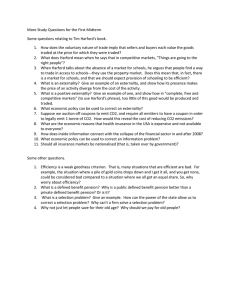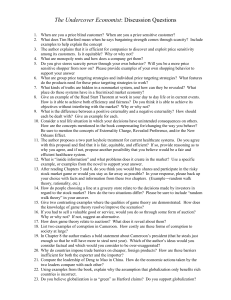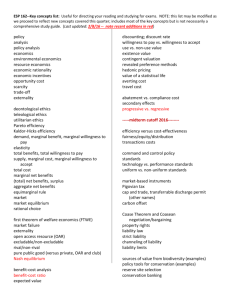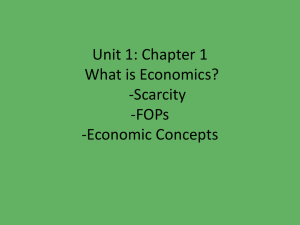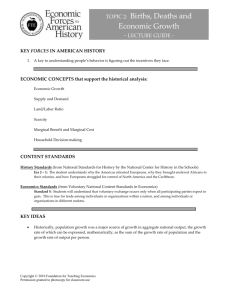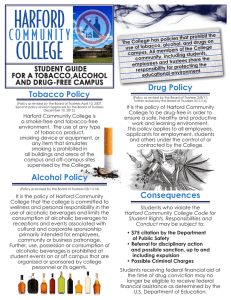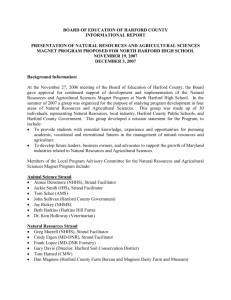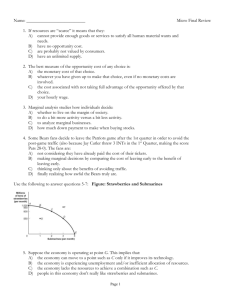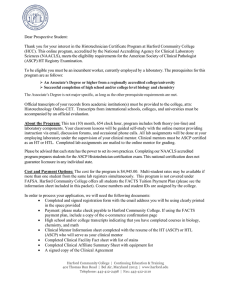Name: Mr. Wilson's AP Microeconomics AP Summer Reading Due
advertisement
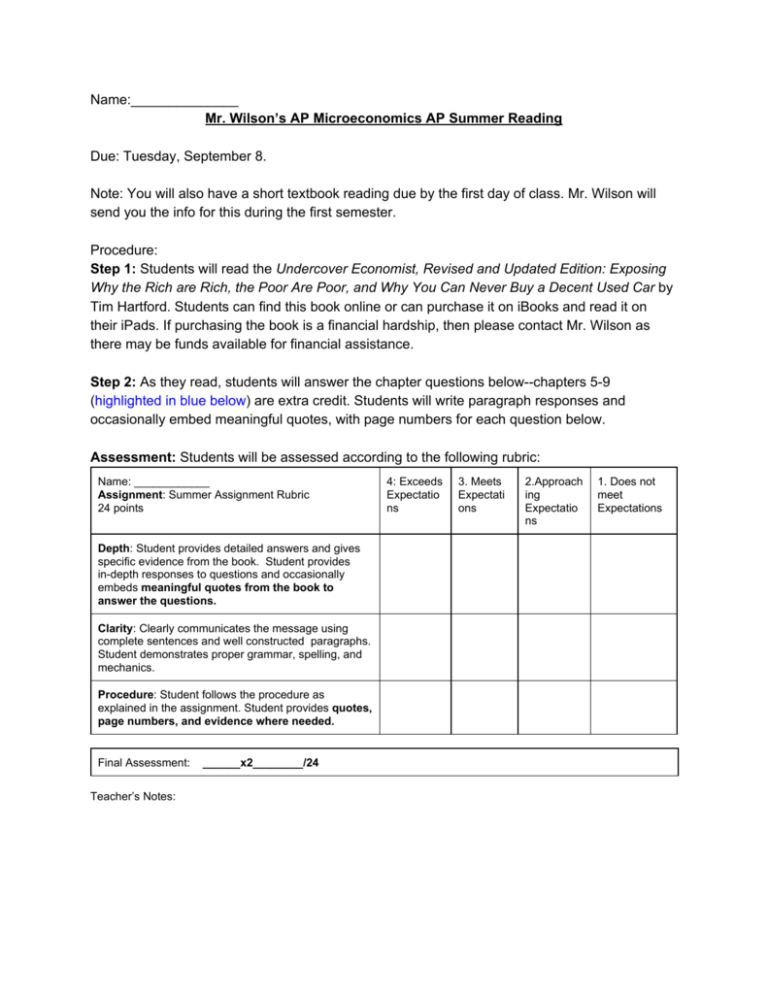
Name:______________ Mr. Wilson’s AP Microeconomics AP Summer Reading Due: Tuesday, September 8. Note: You will also have a short textbook reading due by the first day of class. Mr. Wilson will send you the info for this during the first semester. Procedure: Step 1: Students will read the Undercover Economist, Revised and Updated Edition: Exposing Why the Rich are Rich, the Poor Are Poor, and Why You Can Never Buy a Decent Used Car by Tim Hartford. Students can find this book online or can purchase it on iBooks and read it on their iPads. If purchasing the book is a financial hardship, then please contact Mr. Wilson as there may be funds available for financial assistance. Step 2: As they read, students will answer the chapter questions below­­chapters 5­9 ( highlighted in blue below ) are extra credit. Students will write paragraph responses and occasionally embed meaningful quotes, with page numbers for each question below. Assessment: Students will be assessed according to the following rubric: Name: ____________ Assignment : Summer Assignment Rubric 24 points 4: Exceeds Expectatio ns 3. Meets Expectati ons 2.Approach ing Expectatio ns 1. Does not meet Expectations Depth : Student provides detailed answers and gives specific evidence from the book. Student provides in­depth responses to questions and occasionally embeds meaningful quotes from the book to answer the questions. Clarity : Clearly communicates the message using complete sentences and well constructed paragraphs. Student demonstrates proper grammar, spelling, and mechanics. Procedure : Student follows the procedure as explained in the assignment. Student provides quotes, page numbers, and evidence where needed. Final Assessment: ______x2________/24 Teacher’s Notes: Chapter 1 Key concepts: scarcity, marginal, model What is the connection between "relative scarcity" and "bargaining strength"? 1. What does it mean to say that something is "marginal"? Why does this matter? 2. How would you describe Ricardo's model? 3. What are the limitations of the model? What is "objective" about economics? Chapter 2 Key concepts: price elasticity (sensitivity), price discrimination (targeting) 1. What is the difference between "first degree price discrimination" (unique target) and "second degree price discrimination" (group target)? 2. Does targeting seem fair to you? 3. What are the advantages and disadvantages of price-targeting? Chapter 3 Key concepts: perfectly competitive, efficiency, equity 1. What are the four results of perfectly competitive markets? 2. Explain the following: "you can't get more efficient than a perfectly competitive market". 3. What is the difference between efficiency and fairness (equity)? Chapter 4 Key concept: externality 1. What would be an example of a negative (positive) externality? 2. What is the relevance of "average price" and "marginal price" to externalities? Extra Credit: Chapter 5 Key concepts: asymmetric information, adverse selection, moral hazard, signaling 1. How is adverse selection (the lemons problem) different from moral hazard? 2. What would be some (partial) solutions to problems related to asymmetric information? 3. Explain what Harford means by "keyhole economics". Extra Credit: Chapter 6 Key concepts: random walk, fundamental analysis 1. Given what you've read, what would a rational investment strategy look like? Extra Credit: Chapter 7 Key concepts: game theory, auction 1. What are the advantages and disadvantages of an auction? Chapter 8 Key concepts: diminishing returns, catch-up effect, infrastructure, self-interest, incentives 1. What is the traditional view of the origins of economics wealth? 2. How has the traditional view changed over the last ten years? Chapter 9 Key concepts: comparative advantage, globalization, trade barriers 1. Are Harford's views consistent or compatible with your own? Are his arguments convincing? Why, or why not? Chapter 10 Key concepts: planned economy, market economy, choice 1. Explain why China moved only gradually from a planned economy toward a market economy. Why is China doing better economically than India? than Cameroon? 2. According to Harford, what is economics about?
